Many foodies are keen on splurging on the most recently “discovered” superfood, from achacha to zucchini flowers. Jicama salads, coconut aminos, and turmeric milk tea are all healthy foods. But you can’t grow their ingredients in Canada–they need warmer climates. I don’t call myself a foodie. I’ve yet to try achacha, jicama, or turmeric milk. I won’t line up for the next hot restaurant. And, I won’t spend half my paycheck on a meal. But I do consider myself food-focused, food-enthralled, and even a food-fiend. And so it is that I thought to write about some of the many wonderful local superfoods available in BC.
Local Superfoods BC
Berries
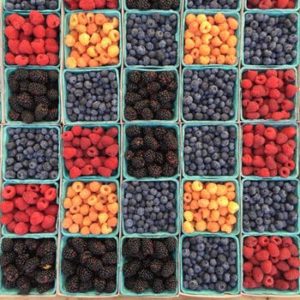 As a Traditional Chinese Medicine (TCM) student, I spent 3 months in China doing internship in 2 different hospitals. One thing I noticed was that most of the TCM doctors drank hot water with goji berries (I know them as an herb called gou qi zi). As the weather got hotter, they added in chrysanthemum flowers. But the goji berries seemed a staple.
As a Traditional Chinese Medicine (TCM) student, I spent 3 months in China doing internship in 2 different hospitals. One thing I noticed was that most of the TCM doctors drank hot water with goji berries (I know them as an herb called gou qi zi). As the weather got hotter, they added in chrysanthemum flowers. But the goji berries seemed a staple.
Most of the world’s commercial goji berries are grown in China, but luckily we do actually have a local goji farm! Gojoy (great name!) is in Aldergrove. A nice local superfoods option, and you can u-pick starting soon! I’m going!
Many other superfood berries are also locally grown, including blueberries, cranberries, strawberries, raspberries, boysenberries, blackberries, and so on and so on. Berries are a great source of fibre, potassium, folate, vitamins C, K, and an assortment of Bs. They are also one of the best sources of antioxidants (including resveratrol–not just in red wine!), helping stave off a wide range of diseases. They may help with fighting off, treating, or managing Alzheimer’s disease, cancer, diabetes, high blood pressure, high cholesterol, and obesity.
Mushrooms
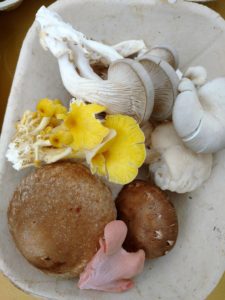 Want to know a secret? Mushrooms. Okay, maybe it’s not an actual secret–you know about mushrooms. But do you know that mushrooms sit atop the list of some of TCM’s most revered herbs? Reishi, shiitake, maitake, cordyceps, turkey tail, and lion’s mane are just some of the most wonderful and wondrous of the medicinal fungi we can eat.
Want to know a secret? Mushrooms. Okay, maybe it’s not an actual secret–you know about mushrooms. But do you know that mushrooms sit atop the list of some of TCM’s most revered herbs? Reishi, shiitake, maitake, cordyceps, turkey tail, and lion’s mane are just some of the most wonderful and wondrous of the medicinal fungi we can eat.
Researchers are expanding their study of the powerful compounds contained in these sometimes odd-looking edibles. Many of them have shown a remarkable ability to help boost immunity when we need to fight off a virus, bacteria, or cancerous cell, while also calming an overactive immune system when it comes to allergies and autoimmune disorders. Depending on the mushroom, they can also support the health of many other body systems, including brain, heart, lungs, liver, and kidneys.
Even the lowly button mushroom has been shown to support many of our systems. Portobello mushrooms make a great vegan alternative for a burger. They are the right size and have a meaty consistency and taste. Which reminds me, I need to make this grilled portobello recipe soon.
At Christmastime I bought myself this bag of mixed dried BC mushrooms from West Coast Wild Foods and enjoyed every precious bite, including in this recipe for sauteed mushrooms (atop mashed sweet potatoes).
Sea Veggies
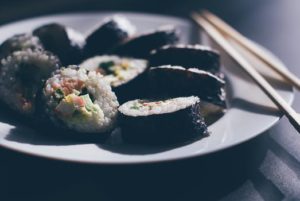 “Eat your veggies,” said King Triton to his daughter Ariel. Or, at least I imagine he might have told her that, as she probably didn’t want to eat her friends Sebastien (the crab) or Flounder (the fish). What veggies would he be referring to? Sea vegetables, of course, including kelp, kombu, dulse, and wakame.
“Eat your veggies,” said King Triton to his daughter Ariel. Or, at least I imagine he might have told her that, as she probably didn’t want to eat her friends Sebastien (the crab) or Flounder (the fish). What veggies would he be referring to? Sea vegetables, of course, including kelp, kombu, dulse, and wakame.
Seaweed is a particularly rich source of calcium, but also magnesium, chromium, iodine, iron, phosphorus, zinc, and vitamins A, Bs, C, E, and K. As it additionally contains a good amount of fibre, it has also been identified as a food that can reduce the incidence of colon cancer, decrease intestinal inflammatory diseases, support intestinal probiotics, and help regulate blood sugars.
For many, the only thought about eating seaweed is when you enjoy a California roll or other sushi. But did you know that you can crumble dried seaweed onto your rice or cooked vegetables, add it to soups or stews, or soak it and toss it on a salad.
Buckwheat
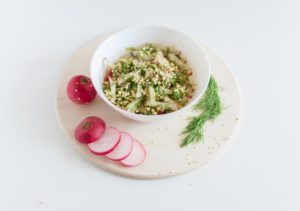 Like quinoa, buckwheat is actually a seed that is thought of as a grain. So, yes, it is gluten-free–don’t let the fact that the name contains the word “wheat” fool you. Unlike quinoa, buckwheat can be grown locally in BC.
Like quinoa, buckwheat is actually a seed that is thought of as a grain. So, yes, it is gluten-free–don’t let the fact that the name contains the word “wheat” fool you. Unlike quinoa, buckwheat can be grown locally in BC.
Buckwheat offers an excellent source of protein, fibre, antioxidants, magnesium, manganese, zinc, iron, phosphorus, B vitamins, and folate. It has been shown to help lower elevated blood pressure, reduce cholesterol, improve digestion, and help balance blood sugar.
I know people love their quinoa. It seems like healthy restaurant menus contain quinoa in everything. Personally, I find this a real challenge because quinoa causes me stomach pain that radiates into my back. I’d love to love quinoa. But it doesn’t love me back. That’s because the seed and its coating contain the compound saponin, which causes allergies with symptoms like stomach pain, hives, and itchy skin. Some find that soaking quinoa before cooking removes enough saponin to make it easy to enjoy. Doesn’t work for me. So, instead…I get to have a local superfood (even better!) called buckwheat.
I just wish the local restaurants would catch up and make the switch.
A slew more local superfoods
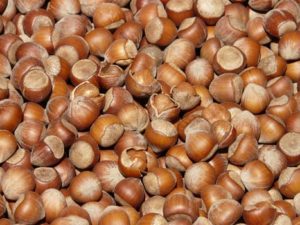 While I do occasionally enjoy tropical fruits and I love coconut oil and avocados, it’s definitely a good idea to try to emphasize local superfoods over exotic ones that have to travel a long way to make it to your plate. The good thing is that here, in BC, we have a lot of options.
While I do occasionally enjoy tropical fruits and I love coconut oil and avocados, it’s definitely a good idea to try to emphasize local superfoods over exotic ones that have to travel a long way to make it to your plate. The good thing is that here, in BC, we have a lot of options.
Just because these foods might be common, doesn’t mean they should be downplayed. We should really celebrate their availability, flavour, and health benefits.
For example, many of us health nuts are nuts over almonds. But almonds are grown largely in California, and they require a lot of water for their growth. Note that California has had some major droughts. Instead, you might consider hazelnuts. These beauties, full of fibre, essential fatty acids, vitamins E and the Bs, folate, copper, and manganese, are grown in the Fraser Valley.
Other wonderful local foods include west coast wild salmon, apples, spinach, broccoli, cauliflower, beets, and pumpkin.
I don’t have a green thumb or the space to keep a garden, but if you do, growing your own local superfoods is perhaps the best way to save money, de-stress, and get and stay healthy.
What local BC superfoods are your favourite?
